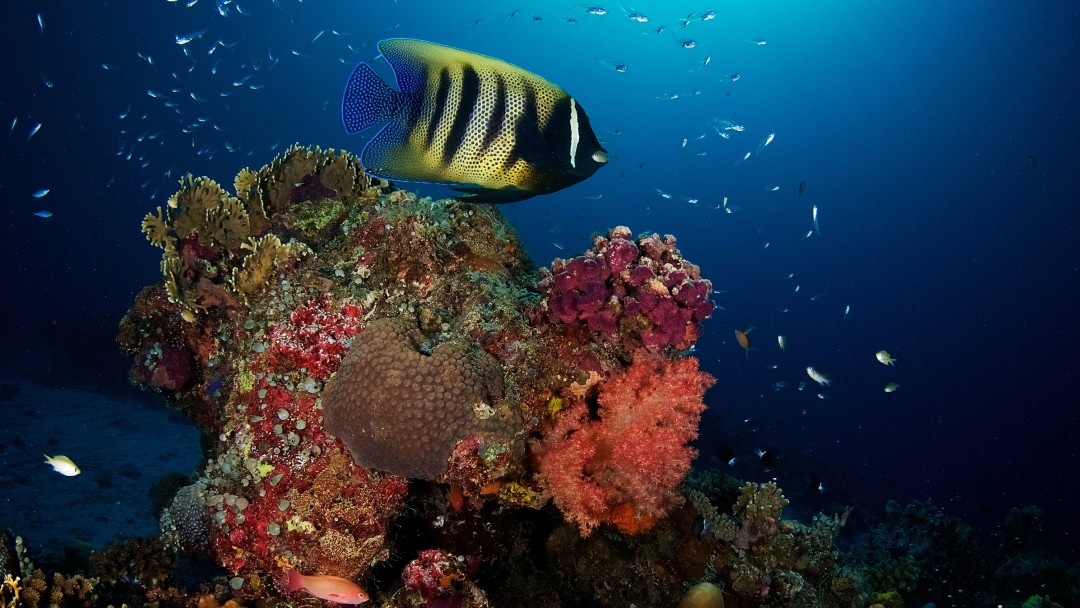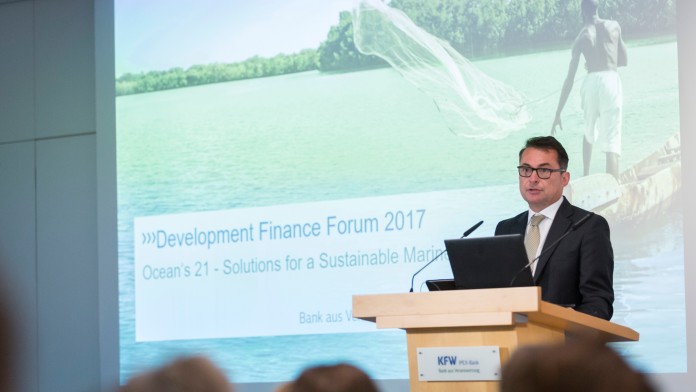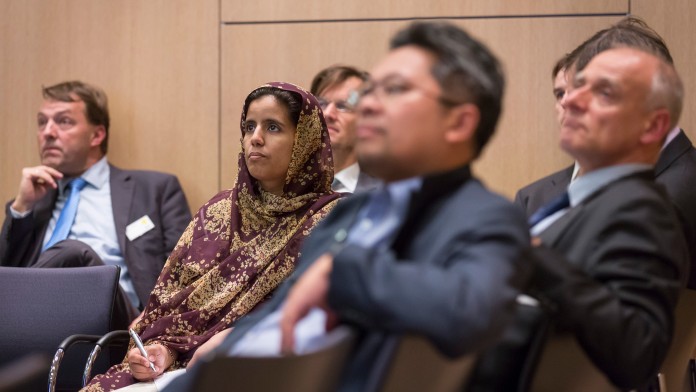News from 2017-11-24 / KfW Development Bank
Development Finance Forum 2017 on Marine Protection
Oceans are the next "ecological frontier" – conference at KfW Development Bank

"Full Speed Ahead for the World’s Oceans" was the motto for this year's flagship event hosted by KfW Development Bank in Frankfurt at the end of November, which was attended by 150 experts from around the world. They discussed methods for relieving strain on our oceans and drew up a list of guidelines and priorities for development cooperation.

The planet's oceans are under extreme pressure: they are becoming polluted, filled with waste and overfished. They are also our largest biosphere; they generate half of our oxygen and store approximately one third of the carbon dioxide generated by humans.
To discuss possible solutions for our oceans with experts from around the world, KfW Development Bank dedicated this year's Development Finance Forum (DFF) to the issue of marine protection. Professor Joachim Nagel, Member of KfW’s Executive Board, opened the event and remarked, "keeping our oceans intact is one of the greatest challenges for humanity and can only be achieved through international cooperation". For this reason, KfW is planning to significantly step up its efforts in marine protection in future.

More protected areas, sustainable fishery
Some of its more recent activities in this area include the Blue Action Fund, which was set up by KfW Development Bank at the end of last year on behalf of the German Federal Government and is due to launch operations in the near future. The fund is a new instrument in marine conservation because it brings state and non-state actors together so that they can achieve more. To be precise, the fund is all about creating more conservation areas and promoting environmentally friendly fishing, sustainable aquaculture and gentle tourism. The seed capital amounts to EUR 24 million but is expected to grow significantly as additional donors join. Sweden has already joined, and further donors have signalled their interest. At the DFF, State Secretary Thomas Silberhorn from the Federal Ministry for Economic Cooperation and Development (BMZ) announced that the ministry would be paying a further EUR 12 million into the fund this year.
So, which instruments might be able to ensure effective marine protection and which measures would be required to achieve this? These were just two of the questions that experts discussed at three different workshops on marine economy, marine protection and marine littering. At the end of the two-day event, they had drawn up a catalogue of specific and practical guidelines to support future work in the field of marine protection by both KfW Development Bank and other parties.
A catalogue of guidelines
The guidelines contain over a dozen individual points. One of these points is to not only considerably increase the area of ocean placed under protection but to also make sure the individual areas are interlinked to improve their effectiveness. The catalogue also contains an appeal to create an international legal framework for ocean areas outside of national remit, which currently make up the majority of the world's marine area. Investments in monitoring illegal fishery were also encouraged, along with sustainable aquaculture and improved value creation chains, such as better cooling and marketing for fish products.
"We are now in the early days of marine conservation," explained Stephan Opitz, Member of the Management Committee of KfW Development Bank. "In five years' time, a much larger portion of our portfolio will be invested in marine protection," he predicted. All those who attended the conference were aware that our oceans are the "new ecological frontier". "Blue is the new green," summed up Marc Engelhardt, Head of Division at KfW. Or, as one participant put it, "we're already dealing with climate change; if we don't amend our ways, then we'll be dealing with ocean change, too".

Share page
To share the content of this page with your network, click on one of the icons below.
Note on data protection: When you share content, your personal data is transferred to the selected network.
Data protection
Alternatively, you can also copy the short link: https://www.kfw-entwicklungsbank.de/s/enzBWrMC.BsoA
Copy link Link copied